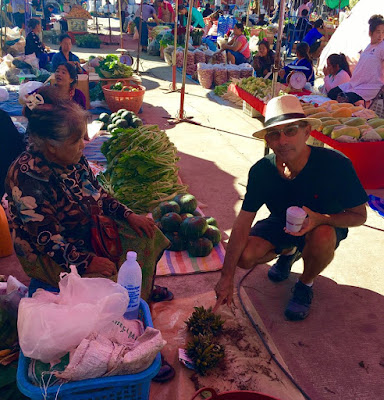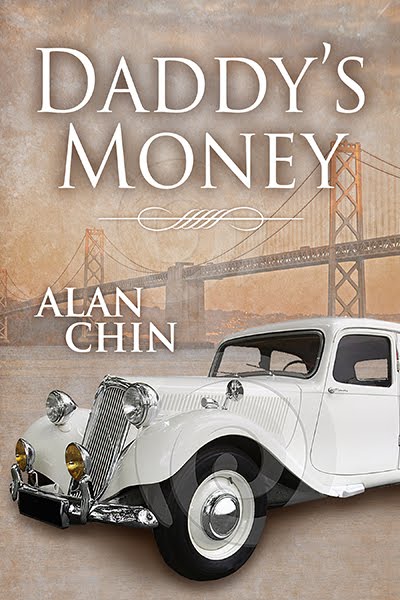My life has not been filled with influential people. I’ve known numerous men and women who I have admired, but for the most part, I did not come to know any of them personally, and because of that, they held little inspiration for me.
My family, on both mother’s and father’s side, had no notable personalities, or at least nobody who could claim any pronounced abilities or achievements. I come from a family of farmers and ranchers. I did, later in life, come to hold my grandfather in high regard, because he could neither read nor write, and yet he worked a rather sizable farm in Ogden, Utah, and raised seven conscientious children. He was a man who worked hard all his life, and expected nothing more than what he earned for himself and his family. His only goal was to instill a sense of integrity into his children, and pass on something to each one of them to help them get started in life. As his children grew of age and married, he parceled off one-seventh of his land and gave it to them as a wedding present, until he had nothing left—rather like King Lear. But because my father moved us to California, not only did we forfeit the land, I rarely saw that honorable man.
I have had three men in my life who have deeply influenced me, each one at a different phase of my development as a human being. The first was my father, who shepherded me into manhood. The second was my first lover, who I lived with for sixteen years, and who taught me the value of education, and infused me with the tools to become successful. The third is my husband and soul mate, who more than anyone, has taught me—through example—to be a compassionate human being. In all three cases, it was not their accomplishments that had an impact on me, but rather, the strength of their character that shaped that part of my life.
I’ll first focus on my father. Bernard Franklin Hurlburt was born into a family of sheepherders in Western Colorado, up around Grand Junction. Shortly after entering the seventh grade, he was forced (I suspect it didn’t take much encouragement) to abandon school and work the ranch through depressed times. That turned into a hard, dull life, which he was finally able to escape via the United States Marines. He enlisted as soon as he came of age, and I believe that all his life, he considered his stint in the Marines as the happiest time of his life.
As a young solider, Bernard was footloose, handsome in his dress blues, and had money in his pockets to impress the girls. He was, by all accounts, a ladies man. By the time he reached his twenty-first birthday, he met a beautiful deaf girl of eighteen years, and he fell in love. He met my mother, a farmer’s daughter, in Ogden, Utah. I’m not altogether sure whether he was on leave or stationed nearby. I do know that they met while he was still in the service of his country, and that she was the main reason he left the Marines for civilian life. They were wed and took up residence in Ogden.
Bernard had no skills other than ranching sheep and precision marching (as a marine, he was a member of a precision drill team). For years, he hung around a mechanic shop in Ogden, learning the trade of auto repair. Those were hard times, because he didn’t get a salary. Members of the Mormon Church dropped by weekly with a box of food. The rest of our food came from my grandfather’s farm. Clothes were all hand-me-downs. My mother tells of walking to the general store and bringing home discarded, cardboard boxes, and then unfolding the boxes flat and nailing them to the walls so keep the winter wind from coming through the gaps between the boards. The first few years of my life were spent in a shack. The rent was ten dollars per month, and in two years we fell six months behind on the rent.
By the time I was two years old, Bernard landed a paying job as a auto-body repairman, and life got easier—at least my family didn’t rely on the Church to feed us. By the time I was five, my father had grown tired of my mother’s protective family giving him grief, and he moved us all to San Jose, California. There he bought a house and opened his own auto repair shop and towing company. Life began looking better, but was by no means Ozzie and Harriet.
Throughout my grade-school and high-school years my father kept food on the table and clothes on our backs through working his shop, The Santa Clara Body Shop. Life was still difficult, much harder for him that I realized at the time, because he couldn’t read and he needed an adding machine to do even simple arithmetic. Add to that he developed a drinking problem and liked to chase women. Mother, being deaf, totally depended on him for income. It became a heavy burden for him, and as the years drew on, the burden became heavier.
Those school years in San Jose are the time he held the most influence over me. He taught me valuable life lessons, molded my character, and also taught me destructive behavior.
My father was a man with many qualities, and the foremost was his tendency to take risks. When people told him he couldn’t do something because he didn’t have the education or the money or the knowhow, he found a way. Once he set his mind on something, his determination grew as strong as tempered steel. As the example above, learning a new career, his fortitude kept him showing up at that mechanic shop, day after day, year after year, doing odd jobs for no pay, because he knew someday it would pay off, some day he would be his own boss.
More than any man I’ve ever known, he made the most with the hand life dealt him, and he never let his shortcomings stop him from attaining something he truly wanted. I remember learning to ski with him. He refused to pay for lessons or rent proper equipment (which was so typical of him). We simply borrowed someone’s old, dilapidated skis, boots and poles, took the chairlift to the most difficult runs, pointed our skis down hill, and flew until we fell. Then we picked ourselves up, point the skis down hill again, and off we sailed until the next fall. At the end of the first week, we could make it down most of the slopes without falling, and we never returned the borrowed skis. That was how he rolled, and that’s the paramount lesson he taught me—never be afraid to go after something, no matter the obstacles. Just do it, and keep doing it until you become good at it.
Even at an early age I admired him for his determination, his grit. I still do.
The negative side of that equation, however, was that early on, he drummed it into my head that I didn’t need an education to become successful. As long as I didn’t dream too large, reach too high, I could blow off schooling, which is what I did. I became, like him, streetwise, and held a mild distain for people who worshiped in the halls of higher education. I became convinced that I could live a comfortable life by not playing by the rules, or more accurately, by living by my father’s set of bull-in-a-china-shop rules, and living by the seat of my pants.
So high school was a waste for me, I never cracked a book; I learned little or nothing there. That attitude was fortified during my four years in the US Navy, where I got along quite well without being educated. In the navy I was in my element, surrounded by others like me, being always governed by the officers (men who were college educated).
It wasn’t until I met my first husband, John Aherns, that my dreams grew larger than my education. John was cultivated, professional, and respected. He worked as a computer analyst, spent money frivolously, and for whatever inexplicable reason, he became enamored by me. Almost over night, he quickly became everything I wanted to be. Because of John, I was no longer content to live a smallish life, held back by the limitations my father had pounded into me. My dreams expanded, like climbing a trifling foothill, only to finally see the glorious mountain range beyond.
I will always be both grateful and resentful of my father’s lessons. It has taken a lifetime to undo that initial damage, yet he also instilled the determination to never give up, to dream big and make it happen, even if it takes a lifetime.































.jpg)